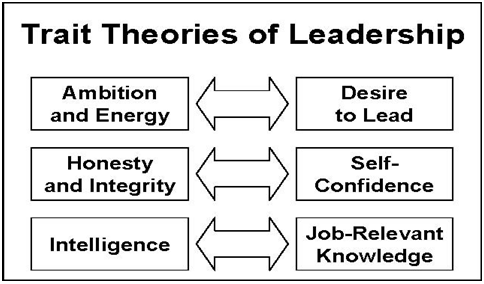Discover the Trait Theory of Leadership, its characteristics, and how it predicts effectiveness. Explore key traits that differentiate leaders and drive success
What Is Trait Theory of Leadership?
The trait leadership model is based on the characteristics of many leaders- both successful and unsuccessful – and is used to predict leadership effectiveness.
The resulting lists of traits are then compared to those of potential leaders to assess their likelihood of success or failure.
Scholars taking the trait approach attempted to identify physiological, demographic, personality, self-confidence, aggressiveness, intellectual, task-oriented, and social characteristics with leader emergence and effectiveness.
Successful leaders have interests, abilities, and personality traits that differ from those of less effective leaders.
Through many types of research conducted in the last three decades of the 20th century, a set of core traits of successful leaders have been identified.
These traits are not responsible solely for identifying whether a person will be a successful leader or not. Still, they are seen as preconditions that endow people with leadership potential.
This theory, focusing on the leader, attempts to identify leaders from non-leaders based on certain traits.
It mentions that leaders are born, not made.
Finally, this theory, also called Greatman Theory, gave way to a more realistic trait approach which views that traits are not completely inborn but can also be acquired through learning and experience.
There is no agreement in research findings on which traits are generally found in leaders and which traits are more important than others.
This approach, at best, is descriptive but not analytical or predictive.
It is still alive, though the focus has shifted from personal traits to job-related skills. As identified by Katz, being an effective manager requires technical, conceptual, and interpersonal skills.
One important limitation of this theory is that it overlooks the needs of the followers and ignores situational factors.
The theory also fails to mention the traits necessary to maintain leadership.
Measurement of a trait usually occurs after a person becomes a leader, and it is difficult to suggest the traits which are prerequisites of a successful leader.
Advantages of Trait Theory
- This is a naturally pleasing theory.
- It is valid a lot of research has validated the foundation and basis of the theory.
- It gives a detailed knowledge and understanding of the leader element in the leadership process.
Limitations of Trait Theory
- There is bound to be some subjective judgment in determining who is regarded as a good or successful leader.
- The list of possible traits tends to be very long.
This theory is very complex.
6 Traits in Trait Theory of Leadership That Differentiate Leaders

Drive
Leaders exhibit a higher effort level. They have a relatively high desire for achievement, are ambitious, have a lot of energy, are tirelessly persistent in their activities, and show initiative.
The desire to Lead
Leaders have a strong desire to influence and lead others. They demonstrate a willingness to take responsibility.
Honesty and Integrity
Leaders build a trusting relationship between themselves and followers by being truthful or not deceitful and by showing high consistency between word and deed.
Self-confidence
Followers look to leaders for an absence of self-doubt. Leaders, therefore, need to show self-confidence to convince followers of goals and decisions.
Intelligence
Leaders need to be intelligent enough to gather, synthesize and interpret large amounts of information and to be able to create visions, solve problems and make correct decisions.
Job-Relevant Knowledge
Effective leaders have a high degree of knowledge about the company, industry, and technical matters. In-depth knowledge allows leaders to make well-informed decisions and to understand the implications of those decisions.